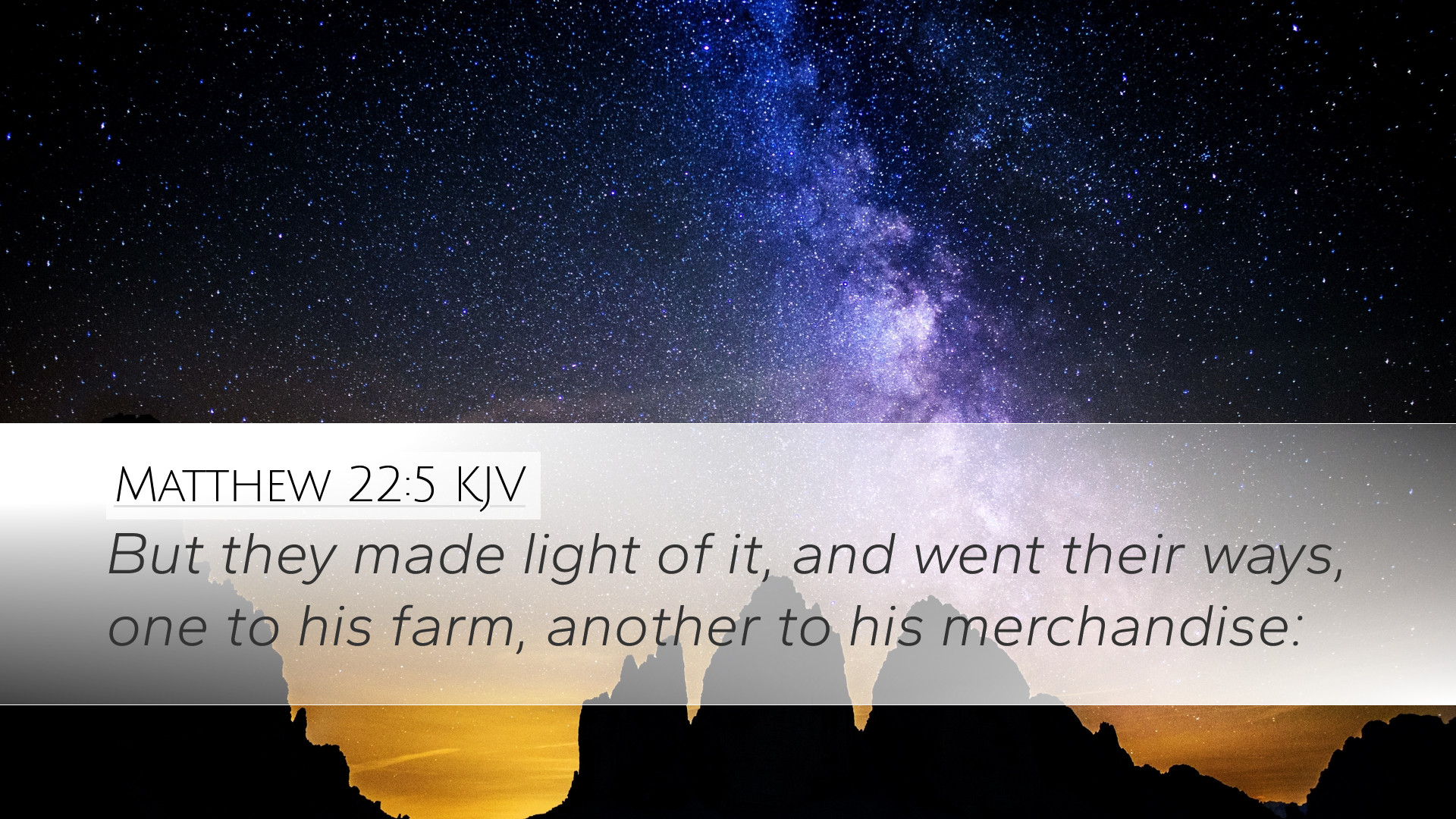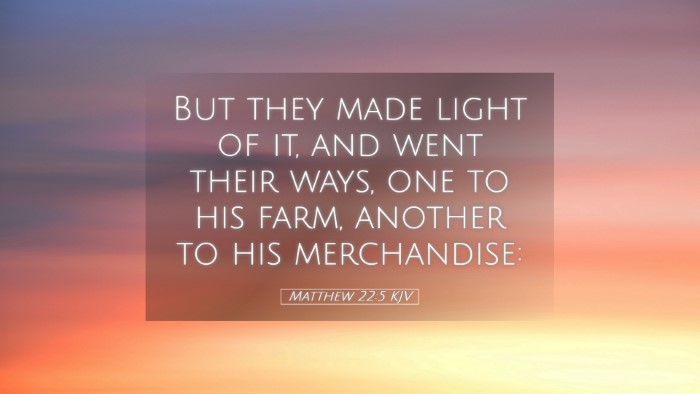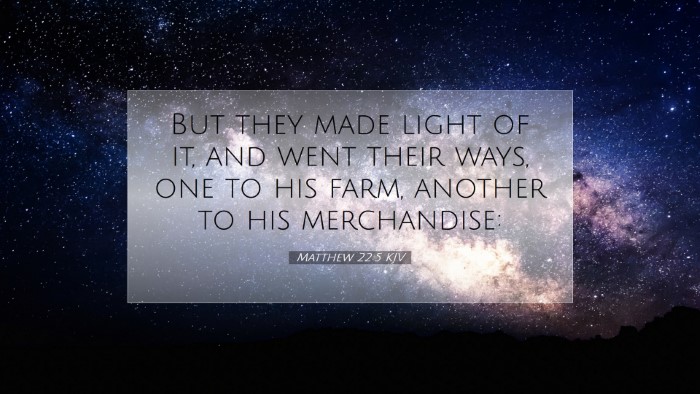Bible Commentary on Matthew 22:5
Matthew 22:5 states: "But they made light of it, and went their ways, one to his farm, another to his merchandise."
This passage occurs in the context of the Parable of the Wedding Feast, where Jesus illustrates the invitation to the kingdom of heaven and the various responses of those invited. The verse highlights a profound lesson regarding the human tendency to prioritize earthly affairs over divine invitations.
Contextual Analysis
The wider context of Matthew 22 involves a series of teachings and parables given by Jesus during His final days in Jerusalem. This parable specifically addresses the Jewish leaders' rejection of Christ and their indifference towards the Gospel. The invitation to the feast symbolizes God's call to salvation, while the guests' rejection represents the spiritual blindness and apathy of Israel.
Commentary Insights
Matthew Henry's Commentary
Matthew Henry offers an insightful analysis of this verse, emphasizing the “wickedness of neglecting the great salvation.” He suggests that the guests' casual dismissal of the invitation illustrates mankind's propensity to disregard divine calls in favor of mundane concerns.
- Indifference to God's Call: Henry remarks that the individuals prioritized their worldly possessions over spiritual opportunities, a behavior that often pervades humanity.
- Consequences of Rejection: He warns that this indifference ultimately leads to exclusion from the feast, which reflects the eternal consequences of rejecting God's invitation.
Albert Barnes' Commentary
Albert Barnes emphasizes the notion that the rejection of the invitation signifies a lack of reverence toward God. In Barnes’ view, the guests' decision to attend to their farms and merchandise rather than responding to the call of the king represents a choice filled with the folly of neglecting what is of eternal significance.
- Earthly vs. Spiritual Priorities: Barnes points out that the individuals did not outright deny the invitation; instead, they simply deemed it unimportant compared to their immediate concerns.
- Application to Believers: He calls believers to reflect on their own lives to ensure that they do not fall into the trap of prioritizing earthly engagements over their spiritual duties and relationship with God.
Adam Clarke's Commentary
Adam Clarke provides a thorough exploration of the phrase "made light of it," suggesting that it implies a deeper, systematic refusal of the king's invitation to his feast. He highlights that the guests' actions reveal not just disregard, but also a deliberate choice to ignore a great honor.
- Cultural and Historical Implications: Clarke emphasizes the cultural significance of attending a feast in ancient Jewish society, which was a mark of honor and community acceptance.
- The Nature of True Commitment: He posits that true discipleship requires a commitment that often necessitates setting aside earthly pursuits to attend to God’s call.
Theological Implications
The theological implications of Matthew 22:5 are profound. This verse serves as a cautionary tale about the importance of recognizing and responding to God's call in the midst of life's distractions. The indifference displayed by the guests warns believers and scholars that neglecting spiritual invitations can lead to spiritual famine and separation from God.
Rejection and Its Consequences
The parable asserts that there are consequences for rejecting the invitation to the Kingdom of Heaven. When those who are called refuse to come, it opens the door for others. The divine invitation is not to be taken lightly, and the personal decision to accept or reject carries significant weight in the context of eternal life.
Modern Application
In the modern context, Matthew 22:5 invites pastors and scholars to challenge their congregations and students to weigh their priorities. What earthly pursuits might distract them from God’s calling? Are there opportunities for ministry and growth that are being overlooked? This passage serves as a reminder that the pursuit of material possessions and concerns can often lead to spiritual neglect.
Conclusion
Matthew 22:5 encapsulates a powerful message about the importance of heeding God's call over worldly distractions. Through the insights gathered from esteemed commentaries by Matthew Henry, Albert Barnes, and Adam Clarke, we are reminded of the vital necessity to prioritize our relationship with God above all else. This verse implores us—a call not just for personal reflection but a proactive pursuit of kingdom work that impacts our communities, churches, and the broader cultural landscape. As we respond to God's invitation, let us do so with a readiness of heart, recognizing the eternal value of His call.


